Home
EU officials were suspiciously cheerful over the prospects of Brexit negotiations running up to the next summit on 18 October. ‘I think there is a chance to have an accord by the end of the year,’ said Donald Tusk, the president of the European Council. Jean-Claude Juncker, the president of the European Commission, did a little dance in humorous emulation of Theresa May’s dance moves the week before at the Conservative party conference. British ministers invented the concept of the ‘hybrid backstop’ for Northern Ireland, involving some more checks and an extension of the United Kingdom’s membership of the customs union. Crawford Falconer, the Department of International Trade’s chief trade negotiations adviser, told the Daily Telegraph that he would be redundant if the UK stayed in a customs union. Michel Barnier, the chief EU negotiator, had the pleasure of a visit from Arlene Foster, the leader of the Democratic Unionist Party. Downing Street made cooing noises at Labour MPs who might vote for whatever agreement Mrs May could bring to Parliament. Shinzo Abe, the prime minister of Japan, said Britain would be welcomed into the Trans-Pacific Partnership trading bloc with ‘open arms’ after it leaves the EU.
The government’s National Cyber Security Centre accused Russia’s military intelligence service, the GRU, of being behind cyber-attacks on the Montreal-based World Anti-Doping Agency, the US Democratic party in 2016, Ukraine’s Kiev metro and Odessa airport, two privately owned Russian media outlets and a small television network in Britain. The Netherlands accused four Russians of plotting to hack the Organisation for the Prohibition of Chemical Weapons which had been examining the Novichok attack in Salisbury. The men had been arrested on 13 April and sent back to Moscow. Dutch intelligence retained a laptop and released information on the Russians’ bungling, even their taxi receipts from GRU headquarters. Separately, a second suspect in the Salisbury poisoning was named as Alexander Mishkin by the British investigative website, Bellingcat, which said he was a military doctor working for Russian intelligence. He travelled under the name Alexander Petrov. His companion, travelling as Ruslan Boshirov, had been named as Colonel Anatoliy Chepiga, a GRU officer.
Four former Northern Ireland secretaries called for millions of pounds to be spent on helping those wounded by the Troubles instead of on historical crime investigations. Jackie Doyle-Price, a health minister, was made responsible for suicide prevention. Trading in shares in Patisserie Valerie was suspended after ‘significant, potentially fraudulent, accounting irregularities’ were discovered. Ray Galton, the writer with Alan Simpson of situation comedies such as Hancock’s Half Hour and Steptoe and Son, died aged 88. Isabel Quigly, a literary figure and former Spectator film critic, died aged 91. MPs on the Environment, Food and Rural Affairs Committee said water companies should be allowed to impose metering, even though bills might rise steeply. The proportion of people aged between 16 and 24 who do not drink alcohol increased to 29 per cent.
Abroad
Meng Hongwei, the head of Interpol, who went missing in September after travelling from Interpol HQ in France to China, was found to have been detained by the Chinese authorities as part of an ‘anti-corruption drive’. Turkey said that the Saudi Arabian journalist Jamal Khashoggi had been murdered in the Saudi consulate in Istanbul, which he entered on 2 October and was never seen to leave. Turkey blamed a group of 15 Saudis who had arrived shortly earlier. Hong Kong refused to renew a work visa for the Asia news editor of the Financial Times, Victor Mallet.
Brett Kavanaugh was confirmed as a Supreme Court justice by the Senate by 50 votes to 48, following party lines. The FBI had carried out a week of background checks focused on complaints of sexual misconduct levelled against him by three women. President Donald Trump called him ‘a man that did nothing wrong, a man that was caught up in a hoax that was set up by the Democrats’. Nikki Haley, the former governor of South Carolina, resigned as US ambassador to the UN.
Kim Jong-un, the ruler of North Korea, via the president of South Korea, invited Pope Francis to visit his country. The Nobel Peace Prize went to two campaigners against rape in warfare, Nadia Murad, an Iraqi Yazidi who had been raped by Islamic State fighters, and Denis Mukwege, a Congolese gynaecologist. In Romania a referendum to impose a constitutional ban on same-sex marriage failed when the turnout reached only 20.4 per cent. Flash floods swept Majorca. CSH
Got something to add? Join the discussion and comment below.
Get 10 issues for just $10
Subscribe to The Spectator Australia today for the next 10 magazine issues, plus full online access, for just $10.
You might disagree with half of it, but you’ll enjoy reading all of it. Try your first month for free, then just $2 a week for the remainder of your first year.

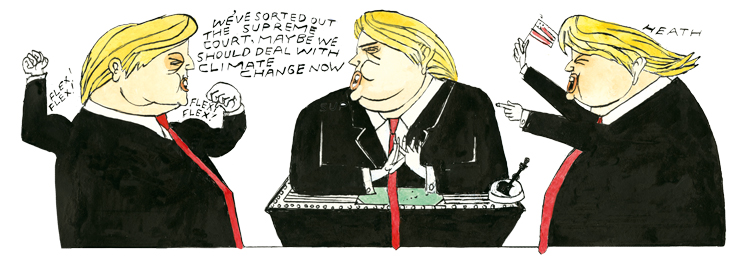
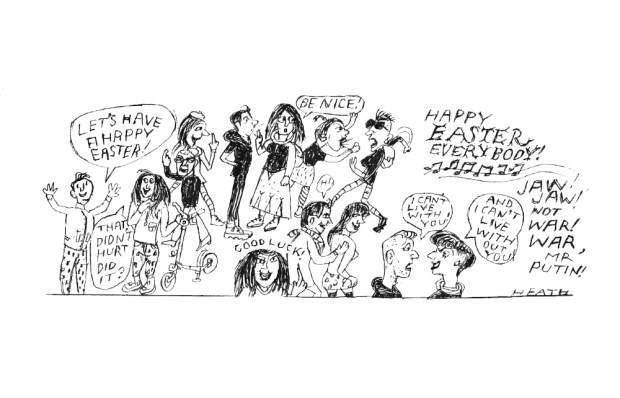
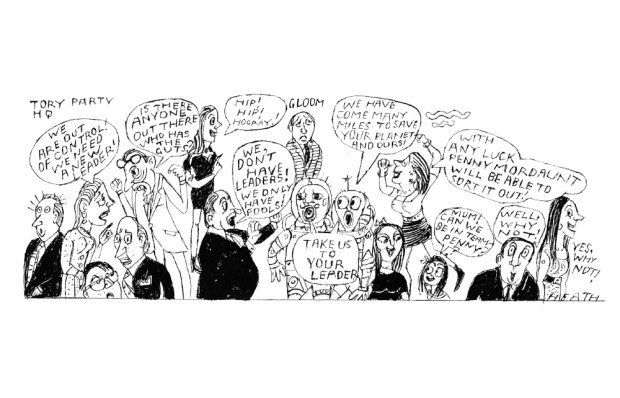
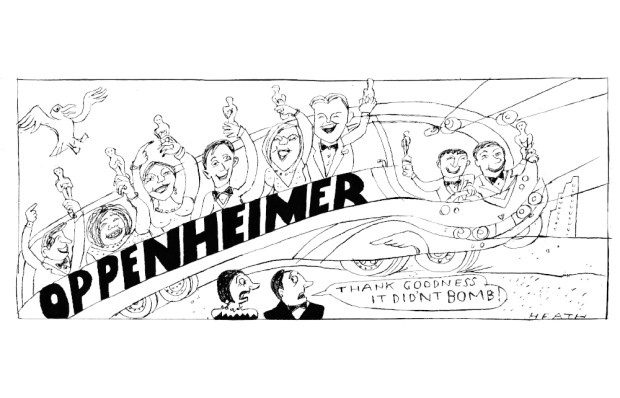
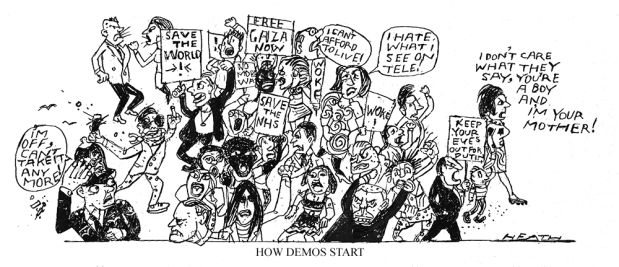
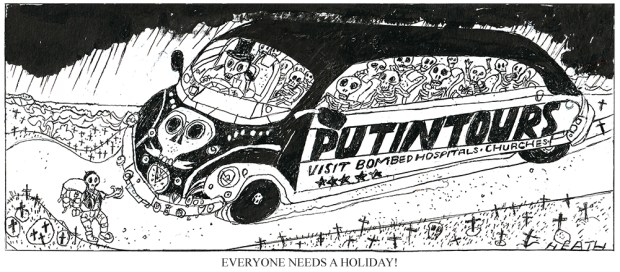
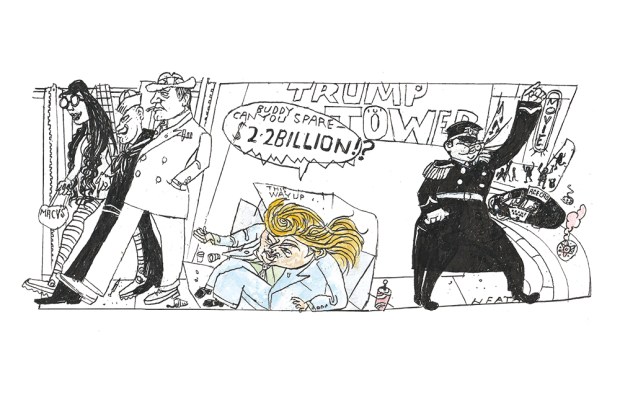






Comments
Don't miss out
Join the conversation with other Spectator Australia readers. Subscribe to leave a comment.
SUBSCRIBEAlready a subscriber? Log in